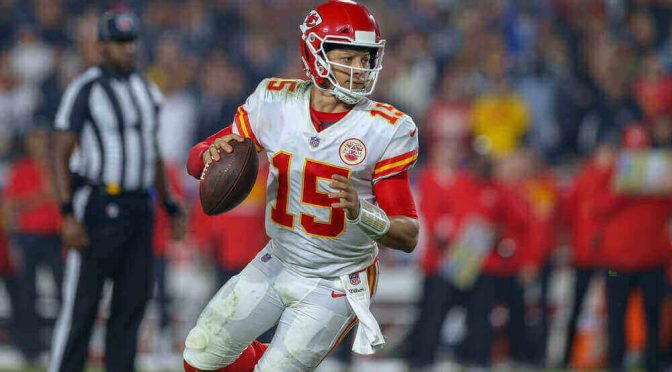Updated: August 11, 2025
NFL MVP Odds 2021
Odds taken from Betonline sportsbook – Bet here for a $1,000 Bonus| Saturday, Jan 16, 2021 | |||||||
|
|||||||
| 04:30 PM | 80001 | Patrick Mahomes | -220 | ||||
| 80008 | Aaron Rodgers | +120 | |||||
| 80032 | Derrick Henry | +1600 | |||||
| 80036 | Josh Allen (QB) | +3300 | |||||
| 80003 | Russell Wilson | +3300 | |||||
[affiliate_link id=”15822″ ]Bet on MVP[/affiliate_link]
How is the NFL MVP chosen?
The MVP award is given out to one player who has completely exceeded any expectations that they had entering the season. For the NFL, there are currently 50 different voters that have been chosen by the Associated Press each year.
Contents
show
Historical MVP Trends
In the early years of the NFL MVP award, positions such as running backs and defensive players frequently shared the spotlight. Notable non-quarterbacks like Jim Brown and Alan Page secured MVP titles, reflecting more varied roles in the game during those times. Over recent decades, the game's evolution towards pass-heavy strategies has tilted MVP considerations toward quarterbacks. This shift shows how offensive schemes have changed and the growing impact quarterbacks have on game outcomes. These 50 voters may not be the same from season to season but there is still a lot of previous voters that stick around for multiple seasons. There are a ton of reasons for a player to receive MVP votes, one of the biggest reasons is their position. Historically, quarterbacks have an advantage in this category due to them being the sole leader and facilitator of an offense. If an offense were to perform like a top unit in the league, the quarterback is given the most amount of credit on their lineup.Criteria for MVP Selection
Voters for the MVP award consider several factors, including statistical excellence, leadership qualities, and overall impact on the team's success. For instance, a player's ability to change the dynamics of a game or season plays an important role. Voters often favor athletes who demonstrate consistent performance, step up during key moments, and lead their teams to successful seasons. Historical examples show that delivering exceptional performances in crucial games often leaves a lasting impression on voters. Another major factor that isn’t talked about as much is the team’s record. While the voters aren’t bias, their votes are normally cast to players on winning teams. If a quarterback has a phenomenal season but his football team is 4-12 on the year, chances are he doesn’t win the MVP compared to someone who was slightly worse than him, but his team finished 14-2. This is especially true among players of other positions as well, as it is already nearly impossible for a player outside of a quarterback to win the award. Especially if that player is on a team with a losing record and isn’t able to make the postseason. [box_text]Ultimately, there are a lot of flaws with this type of voting system as a number of ESPN writers and analysts are able to vote on this award. This leaves the possibility of player bias as well, maybe if a player has superior stats in every category but isn’t able to win the award simply because the voters don’t like him as a person.[/box_text]
Impact of Team Performance on MVP Voting
A team's performance heavily influences MVP voting. Historically, players from winning teams often receive more attention, given their instrumental roles in their team's success. Statistical analysis reveals that MVPs usually come from teams with high win totals, aligning individual greatness with team achievement. This trend highlights the narrative that MVP-winning performances are often those that push teams toward successful seasons. Regardless of all this, the voting process for this particular award will not be changing anytime soon. The voters may circulate from year to year, but the NFL is most likely going to stick with the process that has gotten them this far!Position-Specific MVP Analysis
In the MVP voting process, quarterbacks hold a distinct advantage due to their central role in orchestrating the team's offense. Their decisions can directly influence the outcome of games, putting them in the limelight more frequently. In contrast, other positions such as running backs or wide receivers face an uphill battle for recognition despite their contributions, often requiring extraordinary performances to be considered. Defensive players, while impactful, rarely garner MVP votes, highlighting a systemic preference for offensive prowess.Who was the last non QB to win MVP?
Unfortunately for a lot of players in the NFL, they don’t get the recognition that they deserve. That is especially true among talented skill position players such as running backs, wide receivers, tight ends, kickers and safeties along with others. Most notably when it comes to the MVP award that is handed out at the end of the given season.Notable Non-QB MVPs
Throughout NFL history, several non-quarterbacks have claimed the MVP honor. Players like Jim Brown, whose dominating seasons helped define an era, and Lawrence Taylor, one of the few defensive players to win, set a standard for excellence at their positions. Brown's ability to control games with his rushing and Taylor's defensive dominance were key factors in receiving MVP recognition, showcasing how exceptional talent can break through positional bias.


